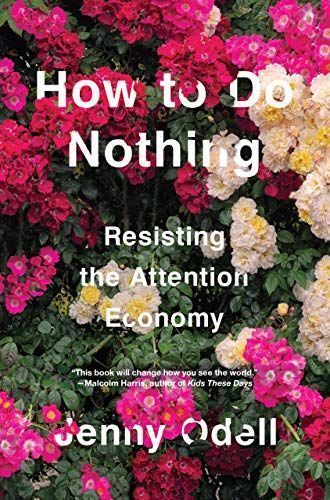
How to Do Nothing
"When the technologies we use every day collapse our experiences into 24/7 availability, platforms for personal branding, and products to be monetized, nothing can be quite so radical as...doing nothing. Here, Jenny Odell sends up a flare from the heart of Silicon Valley, delivering an action plan to resist capitalist narratives of productivity and techno-determinism, and to become more meaningfully connected in the process"--
Reviews
BC Hark@vaporvisions
soph @sbruno25
Gelaine Trinidad@gelaine
John Manoogian III@jm3
Michael Klepacki@kleypack
0xADADA@0xadada
vanessa@ps_itsvanessa
erin@urn
Hannah Yang@hannahyang
Bi@mytileneve
rumbledethumps@rumbledethumps
fvrests@oat
Keven Wang@kevenwang
Alli@allim726
Gisela Ayala @giselasmusings
antonia maria wagner she/they@toniia
Ashley Johnson@ashvalejohn
Doug Belshaw@dajbelshaw
Angel Martinez@angxlmartinez
Queena Li@queena-li
Emma Friedheim@emrosemary
Dora Tominic@dorkele
Udit Desai@uydesai
Kelly Kim@kellykim
Highlights
Carrie Booth@carrielorelle
Grace McCarter@gracemccarter
Annika@ann-ras
Annika@ann-ras
Annika@ann-ras
fvrests@oat
Page 147
fvrests@oat
Page 82
fvrests@oat
Page 70
fvrests@oat
Page 34
Claudine@claudrod
Claudine@claudrod
Claudine@claudrod
Claudine@claudrod
Claudine@claudrod
Claudine@claudrod
Claudine@claudrod
Claudine@claudrod
Pola Schwöbel@fraupola
Pola Schwöbel@fraupola
Gregor Gross@gregorgross
Page 188
Laura@eda
Page 9